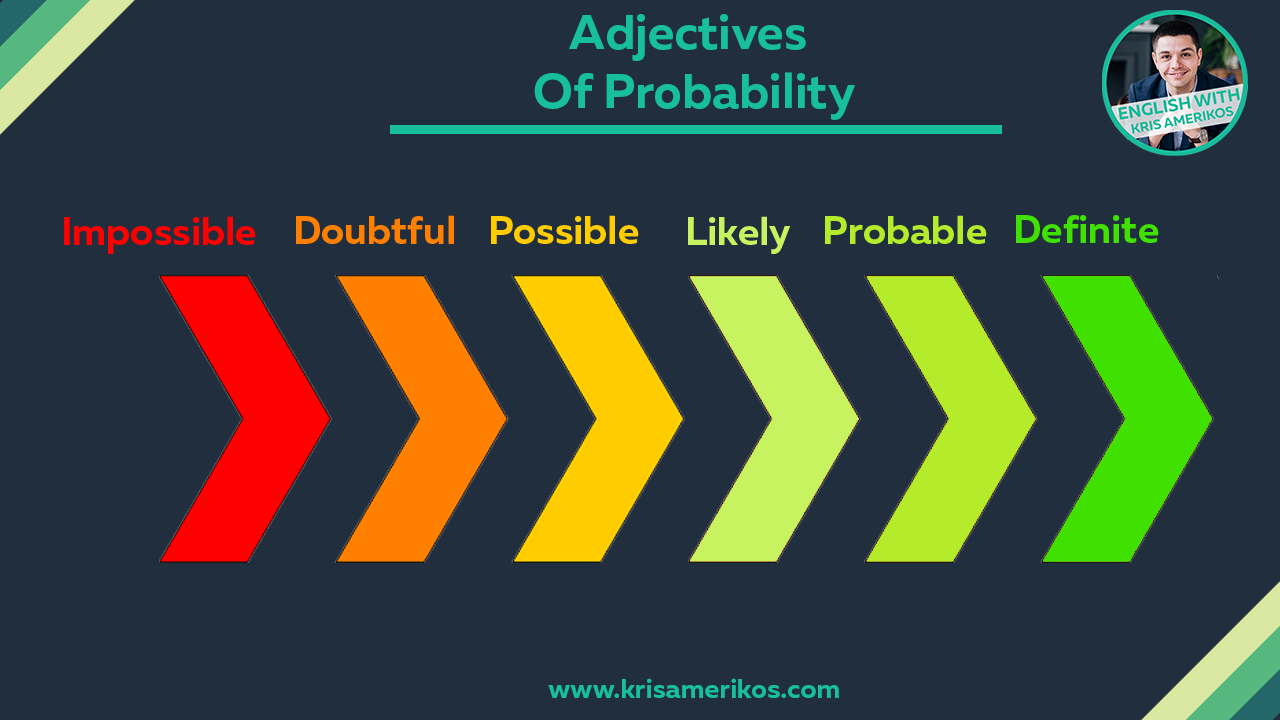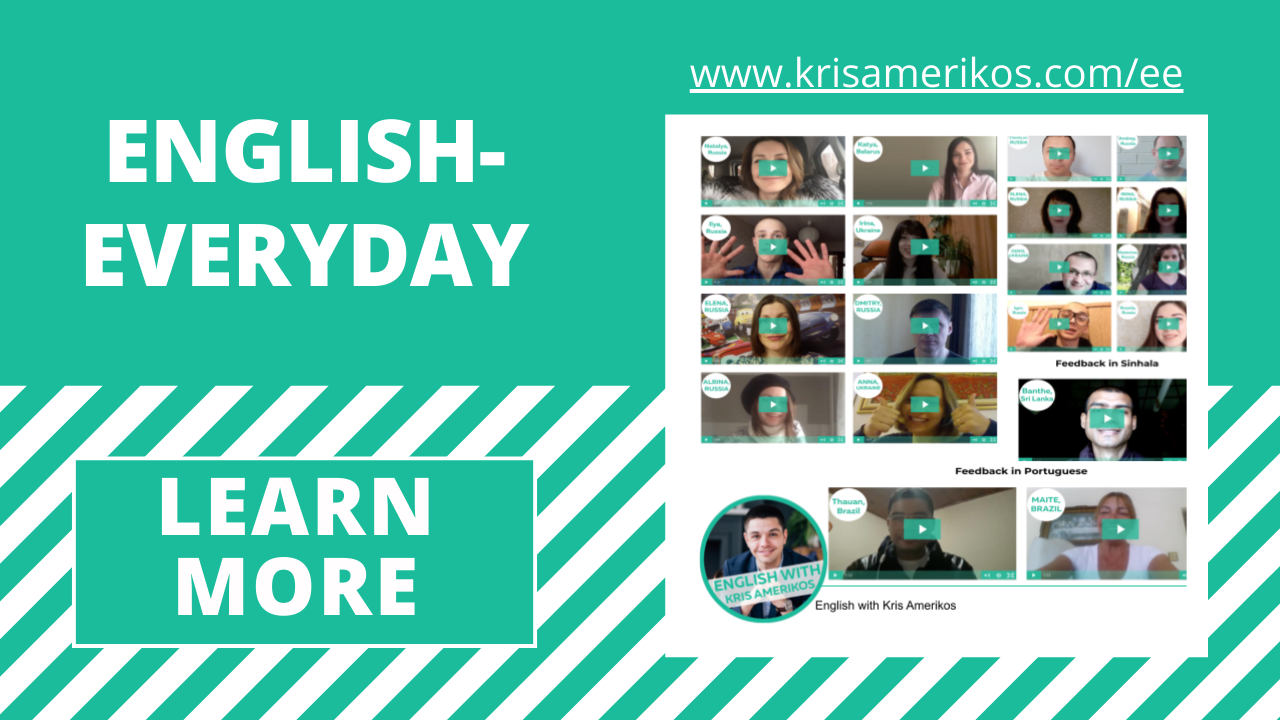Probable vs Possible - Learn The Differences

Probable and possible both speak about something that may (or may not) happen in the future, but probable and possible speak about future possibilities in different ways. If something is possible, it doesn’t mean it’s probable. However, if something is probable then it’s possible too. And if this confuses you then you’re probably in the right place.
Many English language learners mix these two words up and confuse their meanings. In this blog, we will go through the definitions of these words and clarify how to use them correctly. It may be difficult to understand how to use these two words to speak like native English speakers, but it’s not impossible.
Probable and possible are both on a scale of probability. Probability is the level of possibility or chance that something will happen or will be true in the present or future. We can imagine probability as a scale from 0% to 100% 0% meaning there is no chance of something happening in the present or future and 100% meaning something will definitely happen in the present or future. Possible and probable are two ways of stating how likely the chance is that something will happen. They fall at two separate points between impossible and definite.
Probable
‘Probable’ is high up on the scale of probability. If something is probable, then there is a high chance that something will happen. We can imagine that ‘probable’ is around 80% and up on the scale of probability.
Probable means very likely. If something is probable then it is very likely to be true or it is very likely to happen. Probable becomes more and more suitable as we move higher up the scale from around 80% to 99%
The opposite of ‘probable’ is ‘improbable.’ Improbable does not have the same meaning as impossible. Improbable means that something is not likely to happen. It is still possible. We can say that an event is possible but it’s improbable. This means that it can happen but it’s not likely to happen.
Examples Of Probable:
Bad weather is probable today = it is very likely that we will have bad weather today;
I don’t think it’s probable = I don’t think it will happen;
It’s entirely probable = it is very likely to be true;
The most probable cause of death was a heart attack = the most likely cause of death was a heart attack.
The easiest way to understand the meaning of ‘probable’ is to think of it as a measure of probability similar to ‘likely.’ However, ‘probable’ and ‘likely’ do not have the same meanings. ‘Likely’ is not as strong a prediction as ‘probable.’ We can think of ‘probable’ as ‘very likely.’ If something is ‘likely’ then it has around a 50% (and up) chance of happening or being true. Therefore, if something is probable then it is likely but if something is likely it doesn’t mean it’s probable.
We can compare the scale of probability to a scale of emotion. Imagine ‘likely’ means ‘happy’ and ‘probable’ means ‘very happy.’ Once we reach ‘very happy,’ we are also ‘happy.’ We have surpassed ‘happy’ to arrive at ‘very happy.’ In the same way, an event must surpass ‘likely’ to be considered ‘probable.’
A probable event is an event that is very likely to happen but there is still a chance that it won’t happen. Once we reach 100% certainty then we can say it has a definite chance of happening.
Probable Or Probably
Probable and probably have the same meaning - they are just different forms of the same word.
Probable is an adjective (which modifies the noun) and probably is an adverb (which modifies the verb).
For example:
“It is probable.”
“That result isn’t probable.”
“It will probably happen.”
“He probably works hard.”
What is English Everyday
English Everyday is an English course with 24/7 live speaking lessons for English learners who want unlimited speaking practice with native speakers, professional teachers, and students from around the world.
You have live speaking lessons where you can join an unlimited amount of lessons every day. There's a lesson almost every hour and you can join all of them and also, you can review all record lessons. English Everyday contains a lot of conversation practice for each level of English (A2, B1-B2, C1), and also you have a calendar of scheduled lessons so you can see when lessons are and at what time you can join and start speaking.
In English Everyday program, you have 24/7 support and also you have student chat where you can speak with other students from all around the world. You can look at our feedback page so that you can know from which countries our students are. Before you join our program, we strongly recommend you sign up for our free seminar with Kris Amerikos, where you can learn:
- What goals you need to have to get better results
- How to become fluent in English very quickly
- What you need to do to have perfect pronunciation
- The 3 biggest mistakes you need to avoid
- Which free resources will help you learn English
- The best resource to use to improve your speaking
Possible
Possible also talks about probability. However, it speaks about probability at a much lower level on the scale than ‘likely’ and ‘probable.’ Possible simply means that something is not impossible. Possible means that something can be done or be true - but it doesn’t mean that I think it will be done or will be true.
On the scale of probability, possible speaks of anything from 1% and up. If we compare it to our scale of emotions then ‘possible’ is ‘not sad.’ It doesn’t mean that I am happy or very happy. It only means that I am at 1% above feeling sad. Similarly, ‘possible’ doesn’t mean something will happen, it just has a more than 0% chance of happening.
Something that is ‘likely’ or ‘probable’ must be ‘possible.’ However, something that is possible is not necessarily likely or probable. Possible only means it can happen and not that it will happen.
The opposite of ‘possible’ is ‘impossible.’ Possible means that there is a chance that an event can happen. Impossible means that there is no chance that an event can happen. For example, it’s impossible for cats to fly. There is a 0% chance that cats will fly and a 0% chance of this statement being true.
Example Sentences With Possible
I can’t finish all of this work. It is not possible = there is no chance that I can finish the work;
It is possible to buy movie tickets online = you can buy the movie tickets online;
They don’t think it’s possible = they don’t think it can be done;
Is it possible to arrange the meeting for next week? = is there a chance that we can move the meeting to next week?
Possible Or Possibly
These words have the same meaning. They are two different forms of the same word.
‘Possible’ is the adjective form and ‘possibly’ is the adverb form of the word.
Examples:
“It is possible.”
“He says it is possible but unlikely.”
“They can’t possibly want another dog.”
“We could possibly work a little harder.”
What Is The Difference Between Possible and Probable?
‘Possible’ and ‘probable’ are two entirely different words with separate meanings. However, the fact that they fall on the same scale and that something which is probable is also possible usually creates the misunderstanding that these words have the same meaning.
Non-native English speakers often say ‘possible’ when they actually mean ‘probable.’ The adjective that you choose to describe your situation all depends on how likely you think something is to happen. If you think something is very likely to happen then use ‘probable’ instead of ‘possible.’ Mastering these words and using them correctly will improve your English fluency and it will ensure that you communicate effectively in English.
Probable means that there is a high chance that something will happen. We are not 100% certain that the event will happen but we are confident that it will happen or be true in the future. In contrast, possible means that something can happen. There is an above 0 chance of it happening. The event, in other words, is not impossible.
The scale of probability moves from impossible to possible to likely to probable to definite.
For example:
“It is possible but it is highly improbable.”
“That is possible but I don’t think it’s highly unlikely.”
“Perhaps it is possible to finish all of the work today but it’s not probable.”
“It is both a possible and probable reason.”
Probable Or Definite
Probable and definite are not the same and cannot be used interchangeably either. It sounds unnatural to say ‘it is probable that it will rain tomorrow’ when the weather report says there is a 100% chance of rain. In this case, we would need to say ‘it is definite that it will rain tomorrow.’
‘Probable’ is speculation whereas ‘definite’ is 100% clear and fixed. There is evidence that an event will definitely happen. We cannot use ‘definite’ when we mean ‘probable’ and vice versa.
Adjectives Of Probability:
Definite: it is possible, probable, and will definitely happen;
Probable: it is very likely to happen but there is a small chance it won’t happen;
Likely: it will probably happen but there is a bigger chance it won’t happen;
Doubtful/improbable: it is possible but it probably won’t happen;
Possible: it can happen. Perhaps it will happen and perhaps it won’t;
Impossible: it cannot happen. There is no chance that the event can happen.









































